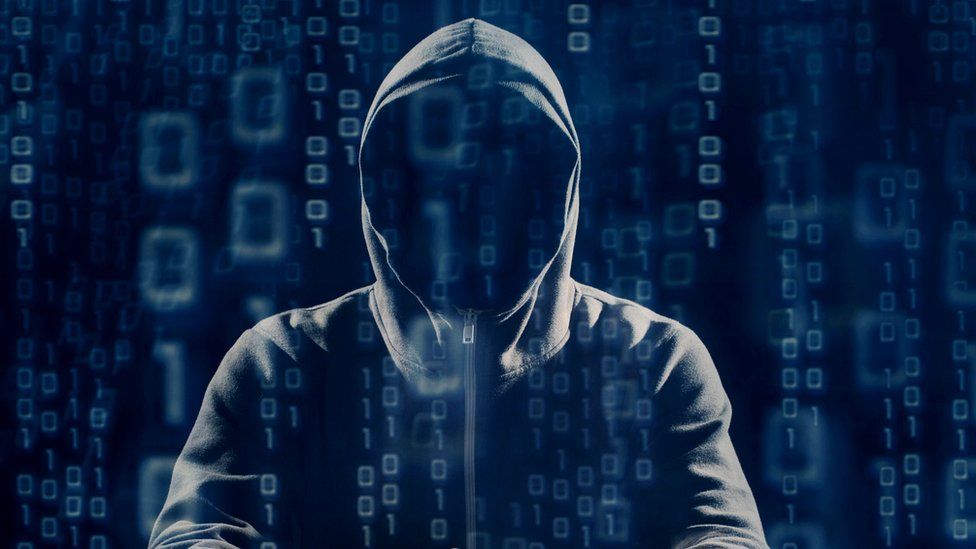Pirate sites are 'affecting dance music in a bad way'
- Published

A network of illegal music download sites are "affecting dance music in a really bad way".
Websites known as pirate download stores imitate legal download and streaming sites and fool people into thinking subscription fees are paid back into the industry.
They're not.
Ben Rush, who runs anti-piracy site AudioLock, said: "We're seeing lots of these sites, they seem to be getting away with it."
He told Newsbeat the network of around 50 sites they are currently aware of is "probably the tip of the iceberg".
One of the main concerns with pirate download stores is how authentic they look and feel.
"The experience is a very legitimate one... there's nothing saying 'hello I'm a pirate site'," explained Ben.
"They have everything; privacy policy, terms and conditions, credit card logos and security certificates."
He also suggested that they tap into users' music download habits.
"What these pirate download stores have managed to do is create a product that the customer wants.
"A customer wants to be able to pay a fixed fee a month and be able to access all the music they want to.
"However, there isn't a business model yet that allows for a store to give you all you can eat for a monthly fee."
It's hard to keep tabs on how much these sites are making.
However, speaking to Newsbeat at the Brighton music conference Mark Lawrence, chief executive of the Association of Electronic Music (AFEM), said it's something they've been looking into.
"An enormous illegal market is being broadly overlooked by the traditional music industry.
"While all the noise is on Spotify and Apple Music - rightly so - for significantly reducing consumer piracy... DJs can't stream, DJs download to play."
He said research carried out by AFEM on the scale of pirate download sites led them to believe that reports of a drop in the number of downloads are incorrect.
"There are around five million DJs in the world.
"The income of these unlicensed and illegitimate sites through those DJs is roughly 10 times greater than the sum of Beatport, Traxsource, Apple, TrackItDown and Juno."
That stat means if you're a label or an artist you're getting around 10% of what you should for your music because the profit from these sites often goes straight to pirates.
Stuart Knight is the director of Toolroom records, one of the world's biggest independent dance labels.
Speaking to newsbeat at Brighton Music Conference he said: "They [pirate sites] are not allowing us to fund new talent, new marketing or really invest into the scene.
"At the moment it's a very measured approach every time we put out a record, it has to stack up.
"There has to be a fan base for the artist because the margins are very tight.
"If these sites went and people were buying off legitimate platforms we could take more risks.
"People buying off these sites are killing their own opportunity in a strange way."
What can be done about them?
If the sites are based in the UK then police can shut them down, but often they're not.
Pirate download sites can also get closed if their payment systems are picked up by the likes of PayPal - but again that doesn't happen very often because they tend to be based on the so-called dark web.
One way around them is making it clear when you're using a legal site.
The AFEM is developing what Mark Lawrence describes as an AFEM-endorsed "this is a legitimate site" mark to make it clear when shoppers are getting the real deal.
This stamp is something Ben Rush, from AudioLock, is also working on - but he says it's unlikely there will be a fix any time soon.
"There are always things going on behind the scenes but it can often just be a slow slog because in terms of a record label, their day-to-day [focus] is distributing records and getting the money from them. This [dealing with pirate download stores] is very much on the side so it does take time."
He called on internet providers and major search engines to give more attention to dance music to help deal with the issue.
"Part of the issue is that the dance music industry is a smaller part of the music industry as a whole.
"The focus still is very much on the more commercial acts.
"It would be good to make sure that we are taken a lot more seriously."
Find us on Instagram at BBCNewsbeat and follow us on Snapchat, search for bbc_newsbeat